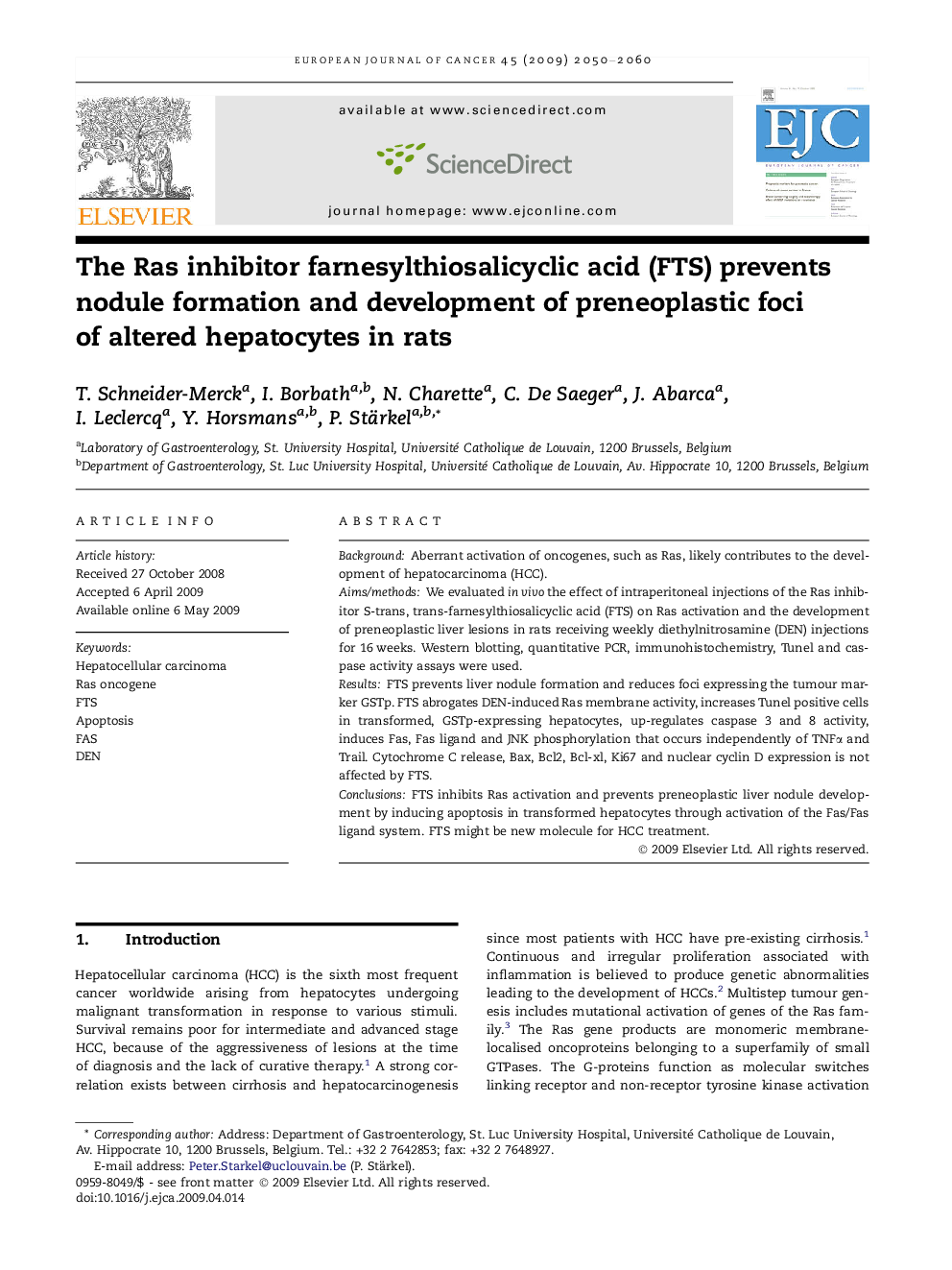| Article ID | Journal | Published Year | Pages | File Type |
|---|---|---|---|---|
| 2125484 | European Journal of Cancer | 2009 | 11 Pages |
BackgroundAberrant activation of oncogenes, such as Ras, likely contributes to the development of hepatocarcinoma (HCC).Aims/methodsWe evaluated in vivo the effect of intraperitoneal injections of the Ras inhibitor S-trans, trans-farnesylthiosalicyclic acid (FTS) on Ras activation and the development of preneoplastic liver lesions in rats receiving weekly diethylnitrosamine (DEN) injections for 16 weeks. Western blotting, quantitative PCR, immunohistochemistry, Tunel and caspase activity assays were used.ResultsFTS prevents liver nodule formation and reduces foci expressing the tumour marker GSTp. FTS abrogates DEN-induced Ras membrane activity, increases Tunel positive cells in transformed, GSTp-expressing hepatocytes, up-regulates caspase 3 and 8 activity, induces Fas, Fas ligand and JNK phosphorylation that occurs independently of TNFα and Trail. Cytochrome C release, Bax, Bcl2, Bcl-xl, Ki67 and nuclear cyclin D expression is not affected by FTS.ConclusionsFTS inhibits Ras activation and prevents preneoplastic liver nodule development by inducing apoptosis in transformed hepatocytes through activation of the Fas/Fas ligand system. FTS might be new molecule for HCC treatment.
